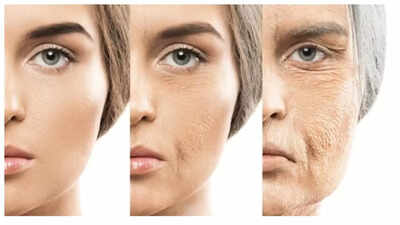
When it comes to skin, hair and bone health, we often hear of the word Collage. The protein substance collagen consists of amino acids which form its molecular structure. Along with this, the skin and tendons and bones and ligaments receive substantial support from its rigid stretching-resistant properties.
This substance functions like adhesive glue to maintain structural unity. Natural collagen production within the body diminishes with age and poor nutrition, causing signs of aging to appear as wrinkles and hair thinning and joint stiffness. Let's see how Collagen impacts hair, bones, and joints—and and how much can one consume daily.How Collagen Helps HairCollagen works to hydrate hair while creating elasticity, because it develops scalp health and maintains flexible hair fibers and hair moisture content.
The hair becomes less prone to breakage.

This apart, Keratin development receives support from collagen amino acids which include proline to create the primary hair protein. The hair becomes more robust and thicker.Collagen also defends hair from destructive elements, such as sun exposure and environmental pollutants and psychological stress which causes hair greying and thinning.How Collagen Helps BonesThe structural framework of bones consists mostly of collagen, which provides them with both flexibility and strength.
The decrease of collagen production during aging, results in weakened bones that increase the possibility of fractures and other injuries.Research indicates that collagen supplements help slow down the natural process of bone deterioration. The bone mineral density improves when taking collagen supplements, which helps protect older adults from developing osteoporosis alongside other age-related conditions.Bone formation too, receives support from collagen because it works with calcium minerals to maintain healthy bone density.How Collagen Helps JointsThe tissue that protects all joints throughout our body contains collagen as its main structural component. The reduction of collagen in the body, results in thinner cartilage that produces joint stiffness and pain.

Research shows that taking collagen supplements may help decrease the amount of pain experienced in joints.
The increased joint flexibility enables easier movement.Research shows that people who consume daily collagen supplements experience enhanced joint mobility, with decreased joint inflammation and pain.How Much Collagen Should You Take DailyThe recommended amount of collagen supplements depends on personal requirements but experts advise the following amounts (consult a doctor before using them though)A daily intake of 2.5 to 10 grams of collagen, meets the recommended amount for skin and hair health.
A daily dose of 5 grams of collagen is appropriate for bone health maintenance. The recommended dosage for joint health through type II collagen is 40 milligrams per day. Higher doses of 10 to 15 grams per day should only be used under medical supervision, when treating severe joint or bone problems. The market offers collagen supplements through powders together with capsules and drinks.Tips for Getting More Collagen, NaturallyNatural sources of collagen exist in bone soup along with chicken skin and fish skin. (vegetarians will have to use supplements)You can also consume a diet rich in vitamin C along with zinc and copper, that will enable your body to make more collagen.Smoking and spending too much time under the sun lead to faster breakdown of collagen.SourcesHealthlinePubMedPMCWebMDDisclaimer: This article is informational only and not a substitute for medical advice. Always consult a medical professional if you want to start collagen supplementation, and take only the recommended dose

 6 hours ago
47
6 hours ago
47




























 English (US)
English (US)